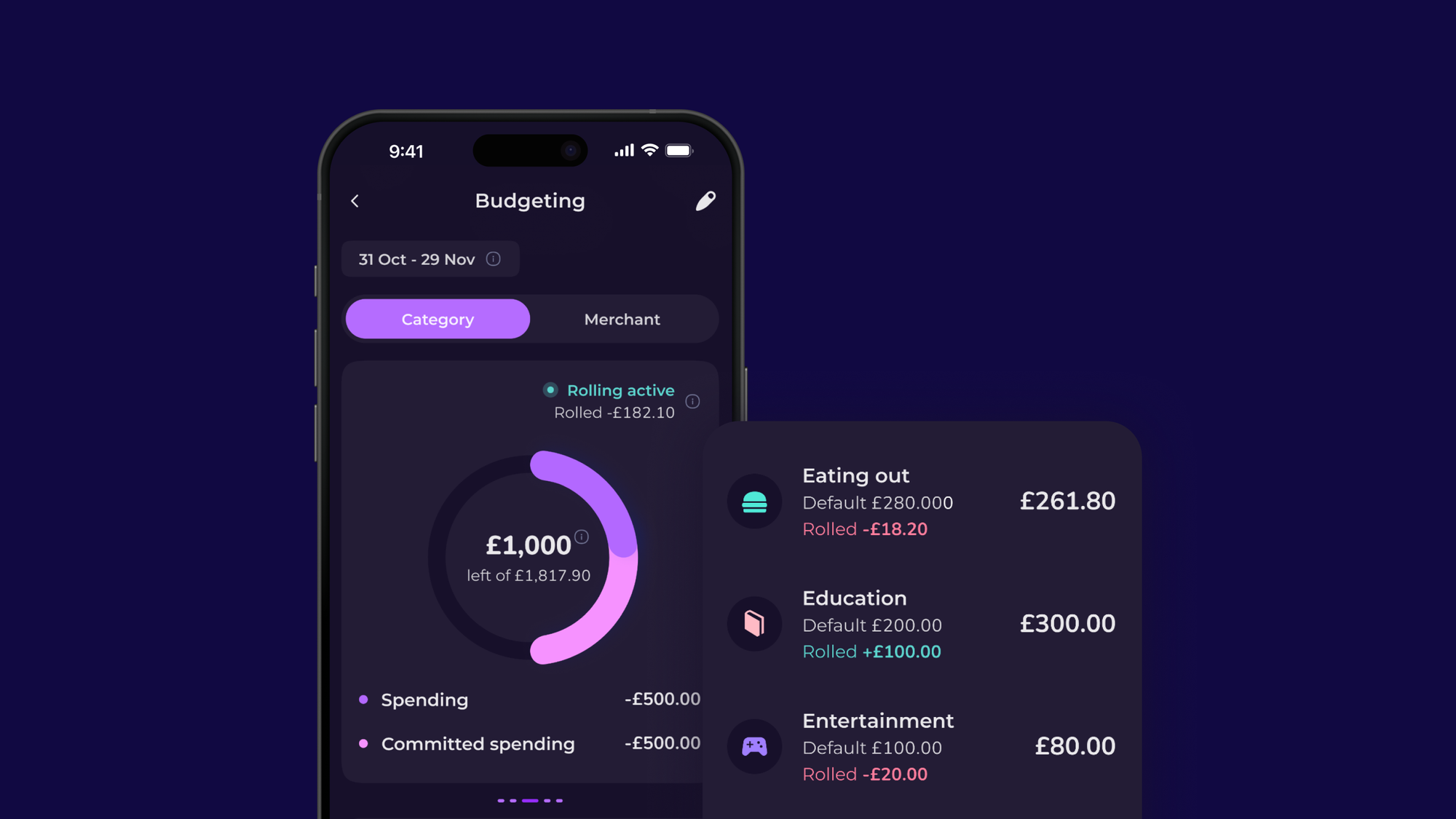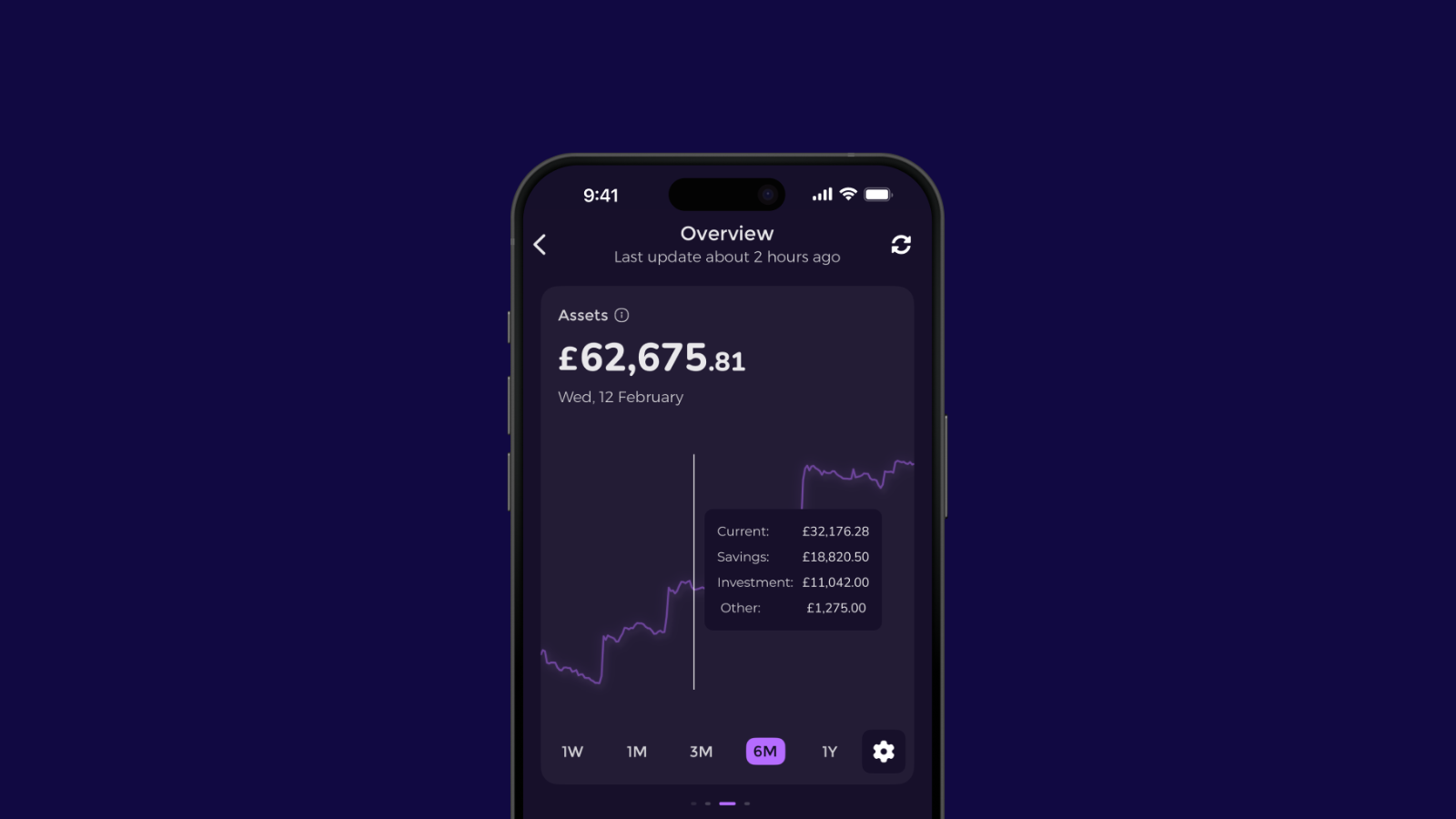FEATURED ARTICLE
The Impact of Budgeting on Mental Health and Well-being

Edoardo Moreni
July 28, 2023 •3 min read
TABLE OF CONTENTS
Financial Stress and Mental Health
Creating a Sense of Security
Building Healthy Habits
Reducing Decision Fatigue
Emma App: Simplifying Budgeting and Tracking
Calm and Headspace: Complementing Mental Well-being
Budgeting is more than just a financial tool; it's a powerful method to cultivate financial discipline and promote overall well-being. While we often associate budgeting with money management, its positive impact on mental health is equally significant.
Financial Stress and Mental Health
Financial stress can take a significant toll on mental health. Worrying about debts, meeting monthly expenses, or facing unexpected financial emergencies can lead to anxiety, sleep disturbances, and even depression.
This financial strain often leaves individuals feeling helpless and overwhelmed, impacting their emotional well-being and overall quality of life. However, budgeting helps individuals regain control over their finances, fostering a sense of empowerment and reducing the burden of financial anxiety.
By creating a well-structured budget, individuals can establish a roadmap to financial stability, which can alleviate stress and promote a more positive outlook on life.
Creating a Sense of Security
One of the most profound benefits of budgeting is the creation of a sense of security. Knowing where your money is going and having a plan for saving and spending provides a reassuring safety net.
A well-managed budget enables individuals to allocate funds for emergencies, future goals, and unexpected expenses. This sense of financial security can significantly alleviate stress and contribute to improved mental well-being.
When individuals have confidence in their ability to handle financial challenges, they are more likely to face life's uncertainties with a sense of calm and resilience.
Building Healthy Habits
Budgeting encourages the development of healthy financial habits. As individuals become more mindful of their spending and saving patterns, they often become more disciplined in other areas of life as well. Creating and adhering to a budget requires consistency, planning, and self-awareness.
These positive habits spill over into other aspects of life, such as time management, self-care, and organisation, further promoting mental well-being. As individuals develop financial discipline, they also enhance their sense of personal responsibility and self-control, positively impacting their overall well-being.
Reducing Decision Fatigue
Constantly making financial decisions without a clear plan can lead to decision fatigue. Decision fatigue occurs when individuals become mentally exhausted from making multiple choices throughout the day.
By establishing a budget, individuals streamline their financial choices, making it easier to focus on other aspects of life without feeling overwhelmed by money matters. A budget provides a framework for financial decisions, reducing the mental burden of constantly analysing each spending choice.
This reduced decision fatigue allows individuals to allocate their mental energy to other important aspects of their lives, contributing to better mental clarity and well-being.
Emma App: Simplifying Budgeting and Tracking
The Emma app serves as a valuable ally in the budgeting journey. With its user-friendly interface and multi-account integration, Emma provides a comprehensive view of one's financial landscape.
By automatically categorising transactions and offering personalised insights, Emma helps users identify areas for improvement, enabling them to make informed financial decisions confidently.
Emma's budgeting features, such as creating spending targets and tracking expenses, empower individuals to take charge of their finances effectively. The app's simplicity and ease of use make budgeting less daunting, encouraging users to stay engaged with their financial goals.
Calm and Headspace: Complementing Mental Well-being
To further enhance mental well-being, incorporating mindfulness practices can be immensely beneficial. Apps like Calm and Headspace offer guided meditation and mindfulness exercises that promote relaxation, reduce stress, and improve focus.
Mindfulness practices involve being fully present in the moment, paying attention to thoughts and emotions without judgment. By incorporating these mindfulness practices into their daily routines, individuals can experience a more harmonious connection between their financial and emotional states.
The practice of mindfulness can be particularly helpful during financial challenges, as it allows individuals to cultivate resilience and cope with stress in healthy ways.
Budgeting is an empowering tool that goes beyond financial management; it significantly impacts mental health and overall well-being. By taking control of their finances through budgeting, individuals can alleviate financial stress, create a sense of security, and develop healthy financial habits. As a result, they experience improved mental well-being and a more positive outlook on life.
Integrating apps like Emma, Calm, and Headspace into this journey can further complement mental well-being. Emma's seamless tracking and budgeting features provide clarity and insight into one's financial situation, while Calm and Headspace offer valuable mindfulness practices to reduce stress and promote relaxation.
Together, this powerful trio empowers individuals to not only manage their finances responsibly but also nurture a positive relationship with money and self.
Remember, building a healthy financial and mental well-being foundation takes time and patience. Embrace the budgeting journey, and with the support of these incredible apps, you'll discover a harmonious balance between your finances and mental health, leading to a happier and more fulfilling life.
Embrace the journey towards financial empowerment and emotional well-being, for it holds the potential to transform your life in remarkable ways.
You may also like
Check out these related blog posts for more tips
© 2025 Emma Technologies Ltd. All Rights Reserved.
Emma is registered and incorporated in England and Wales.
Emma Technologies Ltd is an appointed representative of RiskSave Technologies Ltd, which is authorised and regulated by the Financial Conduct Authority (FRN 775330).
Payment services (Non MIFID or Deposit related products) for Emma Technologies Ltd are provided by The Currency Cloud Limited. Registered in England No. 06323311. Registered Office: Stewardship Building 1st Floor, 12 Steward Street London E1 6FQ. The Currency Cloud Limited is authorised by the Financial Conduct Authority under the Electronic Money Regulations 2011 for the issuing of electronic money (FRN: 900199). For more detail on how your money is protected please see here. You can also find Currency Cloud's Terms of Use here.
Emma Technologies is an Introducer Appointed Representative of Quint Group Limited and not a lender. Quint Group Limited is authorised and regulated by the Financial Conduct Authority (Firm Reference Number 669450). Monevo Limited is an Appointed Representative of TransUnion International UK Limited. TransUnion is authorised and regulated by the Financial Conduct Authority (Firm Reference Number 737740). Emma Technologies introduces customers first to Quint Group Limited, as a licensed credit broker, who then refers on to Monevo Limited.
Emma is registered with the Financial Conduct Authority under the Payment Services Regulations 2017 for the provision of payment services.
Financial Conduct Authority Reg Nr: 794952.
Company Registration Number: 10578464.
Data Protection Registration Number: ZA241546.
All testimonials, reviews, opinions or case studies presented on our website may not be indicative of all customers. Results may vary and customers agree to proceed at their own risk.
Resources: Cancel subscriptions, Cashback offers, Who charged me, Rent Reporting, Budgeting, Investment universe, Emma vs Moneyhub.
Featured cashback offers: Samsung, SimplyCook, NordVPN, Audible, M&S Homeware.









